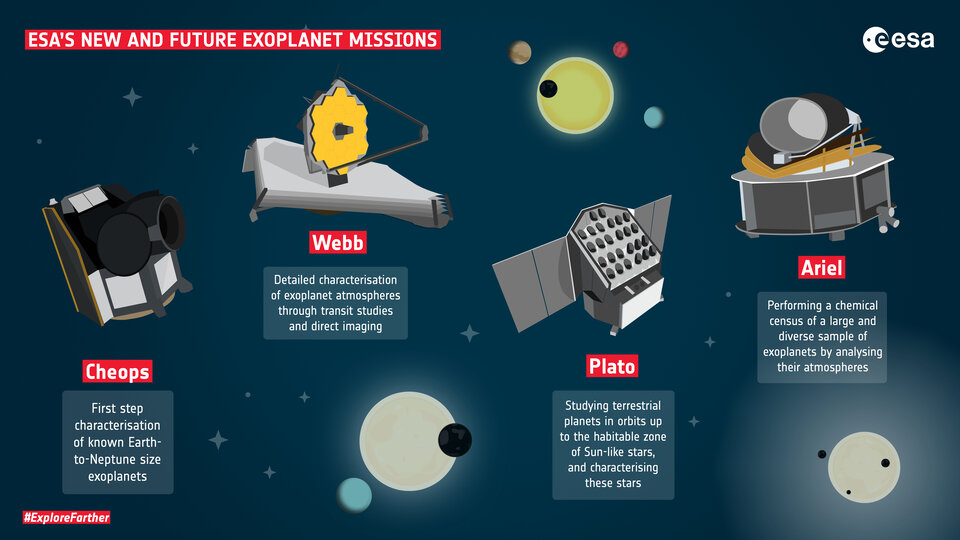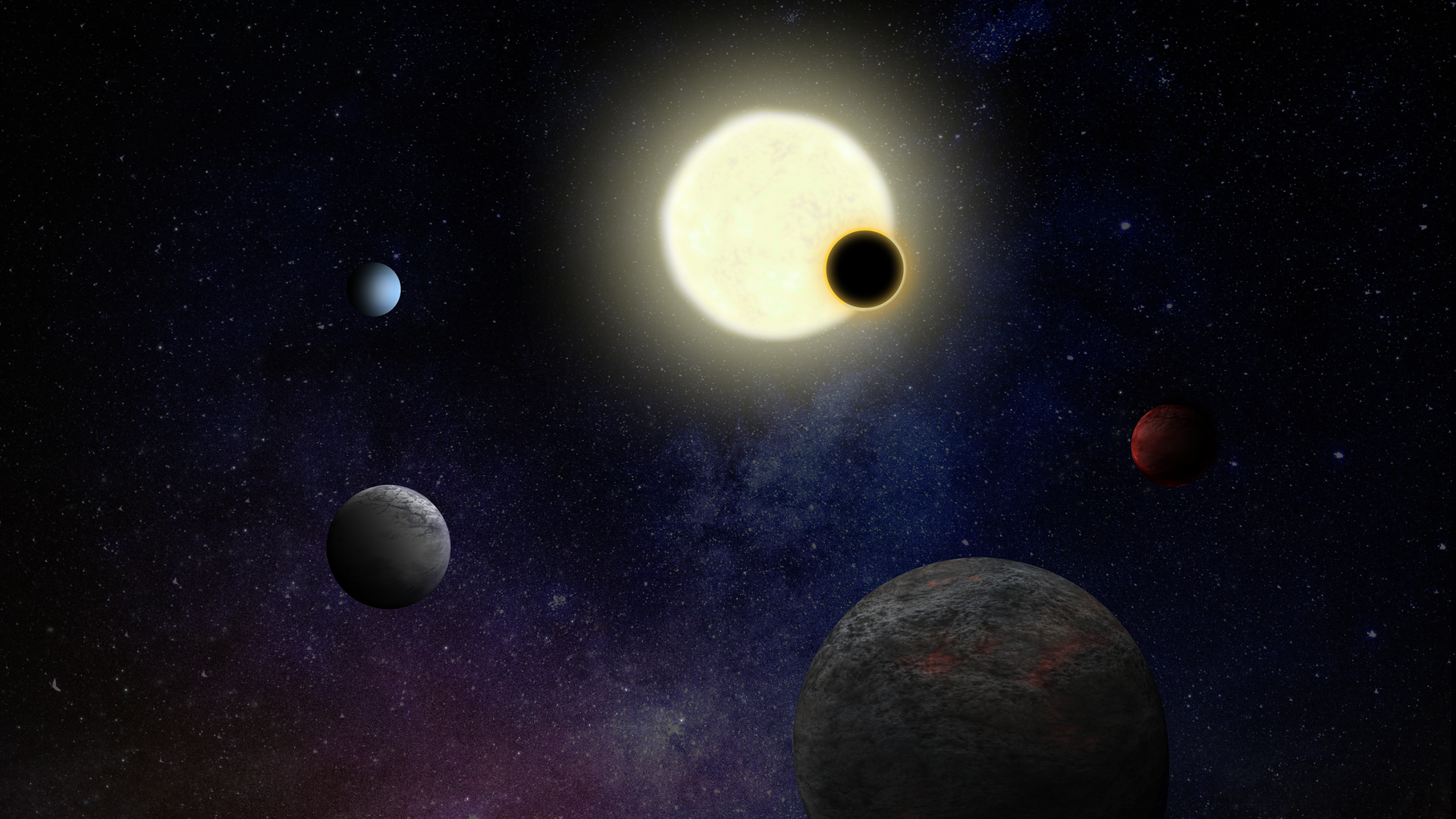UK-backed planet hunting mission moves forward
European scientists are one step closer to discovering distant Earth-like worlds after ESA announced that it is forging ahead with the development of its next-generation exoplanet mission.
Due to launch in 2026, Plato will use a suite of 26 small telescopes and cameras to peer deep into the galaxy in search of habitable planets orbiting alien stars.
Following the successful completion of a critical milestone review, ESA and its partners are now set to continue with the design and production of the spacecraft and its scientific instruments.

The UK is playing an important role in this process, with the University of Warwick leading a European consortium that will ensure the mission is able to fulfil its scientific goals.
Astronomers have discovered more than 3000 planets beyond our Solar System – known as exoplanets – but, as yet, none of these has been found to be truly Earth-like in terms of its size or distance from its parent star.
Plato’s innovative scientific instruments will enable it to gaze at thousands of the galaxy’s nearest and brightest stars, searching for minuscule, regular dips in brightness as their planets pass in front of them.

Scientists will analyse these tiny variations in starlight to uncover detailed information about planetary systems, with the aim of finding Earth-sized worlds orbiting Sun-like stars within the habitable zone – the distance from a star at which liquid water could exist on the orbiting planet’s surface.
The next phase of Plato’s development will be led by OHB System AG in Germany, with Thales Alenia Space in France and RUAG Space System Switzerland as part of the core team.
Caroline Harper, Head of Space Science at the UK Space Agency, said: “The critical milestone review has confirmed the maturity of the design and the robustness of the build schedule for both the science instruments and the spacecraft they will fly on, so it is now full speed ahead for Plato.

“The mission offers the exciting potential for a rocky planet with life signatures to be detected using innovative sensors, electronics and software developed in the UK, on a mission with UK science leadership.”
As well as the University of Warwick’s involvement, engineers at University College London’s Mullard Space Science Laboratory are responsible for the development of the camera electronics for the telescopes.
In addition, the image sensors for the mission are produced by British manufacturing firm Teledyne e2v, and a team of UK scientists coordinated by the University of Cambridge’s Institute of Astronomy is developing the exoplanet analysis data processing system.
Don Pollacco, Professor of Astronomy at the University of Warwick, which leads the Plato Science Management Consortium, said: “The Plato project involves the serial production of complicated components and is challenging to both academia and industry. The critical milestone is a detailed examination of how these processes will work in practice.
“Passing this milestone is reaffirming confidence in the hundreds of scientists and engineers that are working on this mission. Our dream of finding lots of planets like the Earth that we can examine in detail is one step closer.”
Filippo Marliani, ESA Project Manager for Plato, said: “Plato continues a European tradition of excellence in all areas of space science. The mission will serve the science community to gather invaluable knowledge of planets in our galaxy, beyond our own Solar System.
“The successful completion of the critical milestone and the formal start of the second phase of this extraordinary mission constitute an important boost of positive energy for the next challenges to be tackled with our industrial, institutional and academic partners.”


